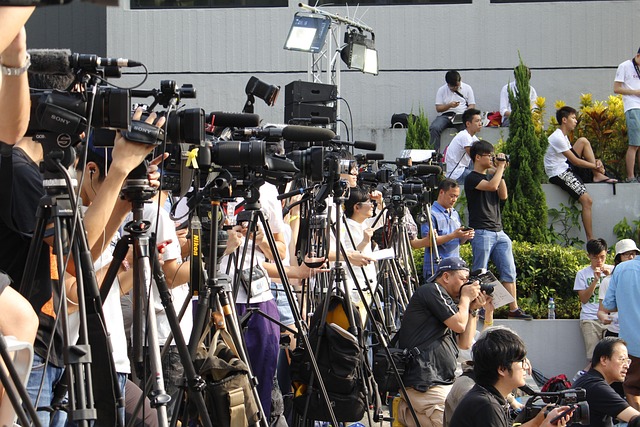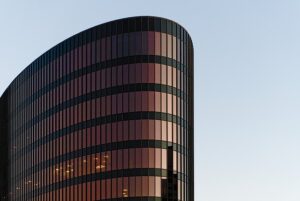Commercial property insurance offers vital protection against diverse risks, safeguarding business assets and operations. It includes structural damage coverage, income loss compensation, and legal defense costs, ensuring continuity. Liability coverage mitigates financial losses from injuries, property damage, and lawsuits. Specialized policies cater to specific industries' needs. Risk assessment is key to tailored policies. Business Interruption coverage compensates for fixed expenses during recovery. Endorsements address unique risks. The claims process aims for swift resolution. Regular reviews ensure evolving business needs are met.
In today’s dynamic business landscape, securing comprehensive business coverage is paramount. This article delves into the intricacies of commercial property and liability insurance, equipping entrepreneurs with essential knowledge to safeguard their assets. From understanding basic commercial property insurance principles to navigating complex liability coverage options, each section provides strategic insights. Learn how to protect against perils, assess risk for tailored solutions, and manage claims effectively. Discover the importance of regular reviews for evolving business needs, ensuring your business coverage keeps pace with industry changes.
Understanding Commercial Property Insurance Basics

Commercial property insurance is a vital component in protecting businesses from potential financial losses related to their physical assets and operations. This type of coverage offers comprehensive protection against risks specific to commercial properties, such as damage or destruction caused by fire, storms, theft, or vandalism. It includes both building and business personal property coverage, ensuring that the physical structure and valuable possessions are safeguarded.
The basics of commercial property insurance involve understanding the extent of coverage provided, including deductibles and limits. Business owners can customize their policies to suit specific needs, ensuring they’re prepared for unforeseen events. This insurance is not just about replacing damaged structures; it’s also about maintaining business continuity. By covering income loss during periods of restoration, it enables businesses to get back on track quickly after a covered event, ensuring stability and financial resilience in the face of adversity.
Protecting Your Business Against Perils

Commercial properties face a myriad of risks and perils that can disrupt businesses and lead to significant financial losses. That’s where comprehensive business coverage comes in as a vital shield. This insurance policy is designed to protect against unforeseen events such as fires, natural disasters, theft, vandalism, and even civil lawsuits.
By purchasing adequate business coverage, owners safeguard their investments and ensure operational continuity. It provides financial compensation for damaged or destroyed property, loss of income during recovery periods, and legal defense costs in the event of a lawsuit. This proactive approach allows businesses to focus on growth and success, knowing they have a reliable safety net against potential pitfalls.
Liability Coverage: Shielding Your Assets

Liability coverage plays a pivotal role in protecting your commercial assets. It acts as a shield, safeguarding your business from potential financial losses due to claims of bodily injury or property damage. This is particularly crucial for businesses operating in environments with higher risks, such as construction sites or food service establishments. By incorporating liability insurance into your business coverage strategy, you ensure that an accidental incident doesn’t lead to bankruptcy or significant financial strain.
This type of coverage provides a safety net, covering legal expenses and damages awarded in lawsuits. It helps maintain the financial health of your business, allowing for continuity and stability even amidst unforeseen challenges. Effective liability coverage assessment involves understanding potential risks specific to your operation, ensuring adequate limits and appropriate deductibles to create a robust defense against claims.
Types of Commercial Liability Policies

Commercial liability policies are designed to protect businesses from various risks and potential lawsuits. These policies fall into several types, each catering to specific needs within the commercial sector. General Liability Insurance is a cornerstone, covering common risks such as property damage, bodily injury, and personal and advertising injury. This broad coverage ensures that businesses are protected against a wide range of incidents that may arise in their operations.
Additionally, professionals often require specialized policies tailored to their industry. For example, Professional Liability Insurance (also known as Errors and Omissions coverage) shields individuals and firms from claims resulting from negligence or errors in services rendered. This is especially crucial for sectors like accounting, law, and healthcare where mistakes can lead to significant legal repercussions. Business Coverage options can further be customized with additional endorsements to address niche risks, ensuring that enterprises are adequately shielded against potential liabilities.
Assessing Risk for Comprehensive Coverage

Assessing risk is a cornerstone in determining comprehensive business coverage, especially for commercial property and liability insurance. It involves meticulously evaluating potential hazards specific to each business operation. For instance, a retail store might face higher risks from theft or public liability due to high customer footfall, while an industrial facility could be more vulnerable to property damage from machinery malfunctions or accidents.
Understanding these unique risk factors is crucial for tailoring adequate Business Coverage. Insurance providers use this assessment to design policies that mitigate financial losses and legal liabilities. By aligning coverage with specific risks, businesses can ensure they’re protected against unforeseen events that could disrupt operations or incur significant expenses.
Business Interruption and Its Importance

Business Interruption, often overlooked, is a critical aspect of commercial property insurance that offers vital protection for businesses facing unforeseen circumstances. This coverage steps in when operations are disrupted due to events like natural disasters, fires, or civil unrest. It ensures that businesses can continue their financial obligations during recovery, including fixed expenses and the cost of temporary alternative operations.
For instance, a restaurant shut down due to a severe storm not only loses revenue from closed-door days but also incurs ongoing costs for rent, employee salaries, and leasehold improvements. Business Interruption Coverage compensates for these losses, helping businesses weather turbulent times. It’s an essential component of comprehensive business coverage that safeguards against potential financial hardships caused by unexpected events.
Adding Special Coverage Endorsements

Adding special coverage endorsements to your commercial property insurance policy can significantly enhance your business’s protection. These endorsements allow for a more tailored approach to risk management, addressing unique and specific needs that standard policies might not cover. For instance, if your business involves handling hazardous materials, an endorsement can provide liability coverage for any resulting damage or injuries. Similarly, endorsements can be added for extended periods of coverage during construction or renovation projects, ensuring you’re protected throughout the entire process.
Business owners should carefully review their policy and consult with insurance professionals to identify gaps in their current coverage. By incorporating these special endorsements, businesses can safeguard themselves against potential liabilities and financial losses, ensuring they are adequately prepared for any unforeseen circumstances. This proactive approach to risk management demonstrates a commitment to safeguarding both the business and its assets.
Claims Process and Resolution Strategies

The claims process for commercial property and liability coverage is designed to ensure swift resolution, minimizing disruption to businesses. When a claim occurs, such as damage from a natural disaster or an accident on premises, policyholders should notify their insurance provider promptly. The insurer will then assign an adjuster who will visit the site, assess the damage, and document it for further review. This efficient process is crucial in business coverage, enabling quick repairs or replacements to get operations back on track.
Resolution strategies vary depending on the claim’s nature and severity. For smaller incidents, negotiations between the policyholder and insurer may lead to a direct settlement. More complex cases might require mediation or arbitration to reach an agreement. Ultimately, the goal is to achieve fair compensation while ensuring the business can continue its operations with minimal downtime, reflecting the core principles of comprehensive commercial property and liability coverage.
Regular Reviews for Evolving Business Needs

In the dynamic landscape of business, where needs and risks evolve rapidly, regular reviews of your commercial property and liability coverage are non-negotiable. As a professional, it’s crucial to ensure that your Business Coverage keeps pace with these changes, providing adequate protection for your assets, operations, and liabilities. This proactive approach allows you to navigate the labyrinthine complexities of the market, adapting to new challenges as they arise.
By conducting thorough reviews, you can identify gaps in your coverage, assess emerging risks, and make informed decisions about adjustments or additional policies. This continuous evaluation fosters a robust risk management strategy, ensuring that your business is not just protected but also prepared for any eventuality.
